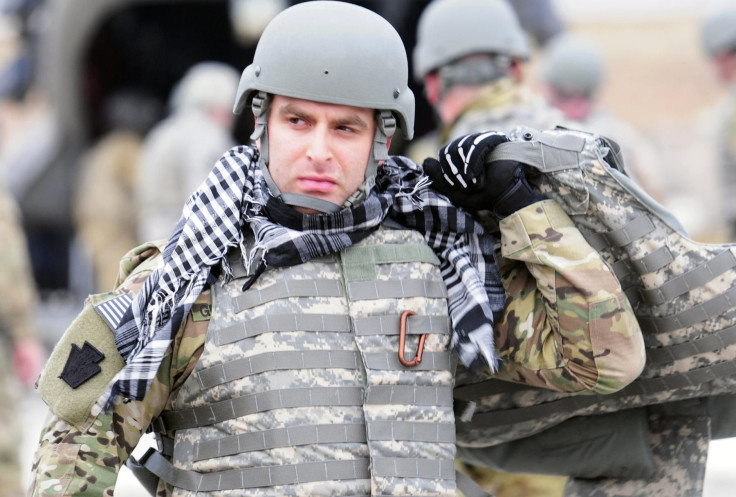Young War Veterans See 44% Spike In Suicide Rates

The suicide rate for young military veterans has risen dramatically by 44 percent for men and 11 percent for women, the Department of Veterans Affairs (VA) says. Every day, nearly two-dozen young men and women who’ve served in the military commit suicide, even as the rate for older veterans holds steady.
The spike in suicides coincides with a 16.1 percent drop between 1999 and 2010 for older veterans receiving care from VA, who somehow resisted a national trend among older American men with a 27.3 percent increase in suicides. For whatever reason, older veterans experienced a lower than average suicide rate while younger veterans committed suicide at the highest rates.
Government officials remain unsure what is driving the spike in the suicide rate, but point to a high prevalence of post-traumatic stress disorder following military service in Iraq and Afghanistan. “Their rates are astronomically high and climbing,” Janet Kemp, the VA’s national mental health director for suicide prevention, told Stars and Stripes. “That’s concerning us.”
Young veterans are committing suicide at a rate three times higher than active-duty troops in recent years. Among veterans ages 18-24, the suicide rate jumped from 46 per 100,000 veterans enrolled in VA medical care to 80 per 100,000. By comparison, young civilians committed suicide at a rate of 20 per 100,000, or roughly one-fourth the rate of young military veterans, according to data from the Centers for Disease Control and Prevention.
Likewise, the overall suicide rate for active-duty soldiers in the Army remained fairly static at 22 per 100,000 during recent years, according to the Department of Defense. The number of suicides among Army soldiers — the military’s largest service — peaked in 2012 at 185 total deaths, at a rate of 30 per 100,000.
The VA conducted a preliminary analysis of the new suicide data, showing that although many of the suicide victims had received VA care, they had not been receiving mental health therapy. "They're young. They've just gotten out of the service," Kemp said. "They're more concentrated on going home, getting jobs, for the most part. They're not coming in for mental health care."
A similar pattern was found among veterans of past foreign wars, according to VA epidemiologist Robert Bossarte."There were were several studies after Vietnam that showed increases in suicide and other forms of injury/mortality for about the first five years following return from service," he told USA Today. "Those rates [eventually] came down to be about the same as the rest of the population."
Kemp said VA would like to bring more young veterans into the system in an effort to ease the suicide rate into the future.



























